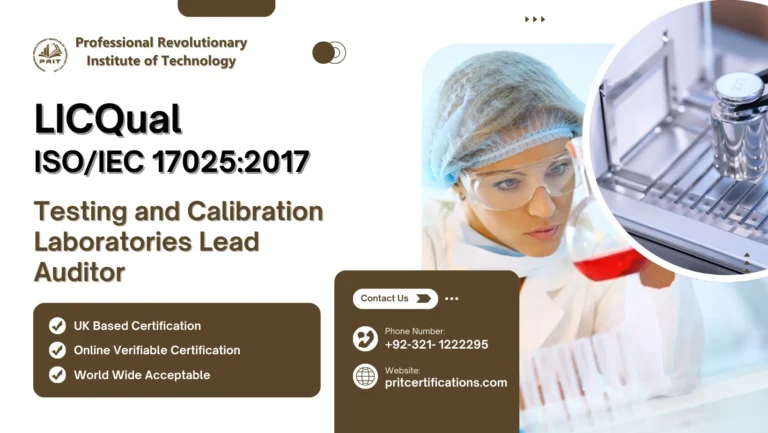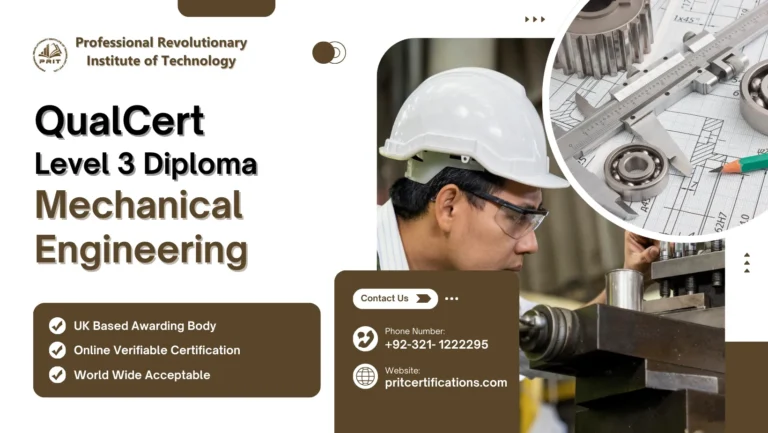
The ICTQual Level 3 Diploma in Automotive Engineering is a comprehensive program designed to equip aspiring automotive professionals with the essential knowledge and skills required to excel in the dynamic automotive industry. This six-month course offers an in-depth exploration of automotive systems, engineering principles, and cutting-edge technologies, ensuring learners are well-prepared for a variety of roles in the field.
Entry Requirements
📘 ICTQual Level 3 Diploma in Automotive Engineering (60 Credits – 6 Months)
🔹 Overview
The ICTQual Level 3 Diploma in Automotive Engineering is designed to provide learners with intermediate to advanced knowledge of vehicle technology, diagnostics, and workshop practices. It builds on Level 2 fundamentals and prepares learners for specialized technical roles or further study in higher-level automotive or engineering qualifications.
This qualification balances theoretical knowledge (engineering principles, mathematics, applied sciences) with hands-on practical skills (vehicle diagnostics, servicing, repair, and use of modern automotive tools and technology).
🔹 Entry Requirements
To enrol, candidates should typically meet the following:
- Educational Background
- A minimum Level 2 qualification (e.g., GCSEs, NVQ Level 2, ICTQual Level 2 Diploma in Automotive Engineering, or equivalent).
- Strong foundation in mathematics and science is highly recommended, as these are crucial for understanding automotive concepts.
- Age Requirement
- Learners must be 16 years or older.
- Language Proficiency
- Proficiency in English is essential for:
- Understanding technical terminology.
- Writing structured reports.
- Communicating effectively in a workshop or professional setting.
- Proficiency in English is essential for:
- Computer Literacy
- Basic computer skills are advantageous, as some modules may involve:
- Diagnostic software tools.
- Simulation programs.
- Technical report writing and presentations.
- Basic computer skills are advantageous, as some modules may involve:
- Prior Knowledge/Experience (Optional but Beneficial)
- Experience or personal interest in automotive mechanics or engineering is helpful for grasping advanced concepts and excelling in workshop practice.
🔹 Course Structure & Units
Learners will complete mandatory units (core knowledge) and specialized units (applied practice). Example areas include:
- Automotive Engineering Principles
- Vehicle systems: powertrain, transmission, suspension, electrical and hybrid technologies.
- Applied mathematics and physics in automotive systems.
- Advanced Vehicle Diagnostics
- Use of diagnostic software and tools.
- Fault identification in mechanical, electrical, and electronic systems.
- Introduction to hybrid and electric vehicle diagnostics.
- Maintenance and Repair Techniques
- Practical servicing procedures.
- Engine management systems.
- Brake, suspension, and steering system repairs.
- Workshop Practice & Health & Safety
- Safe handling of vehicles, tools, and workshop equipment.
- Industry-standard health and safety regulations.
- Environmental considerations in automotive engineering.
- Applied Project / Practical Assessment
- Learners complete a workshop-based project to demonstrate applied knowledge, problem-solving, and technical competence.
🔹 Learning Outcomes
By the end of the course, learners will be able to:
✅ Apply engineering principles to diagnose and repair vehicle systems.
✅ Use diagnostic tools and technology to identify and resolve faults.
✅ Perform maintenance and repair tasks to industry standards.
✅ Understand the fundamentals of hybrid and electric vehicle technologies.
✅ Work effectively in a team-based workshop environment.
✅ Communicate professionally through reports and technical documentation.
🔹 Duration & Credits
- Duration: 6 Months
- Credits: 60 (Intermediate Diploma Level)
- Mode of Study: Combination of classroom learning, simulations, and practical workshop training.
🔹 Progression Opportunities
After completing this qualification, learners can:
- Progress to ICTQual Level 4 and 5 Diplomas in Automotive Engineering or Mechanical Engineering.
- Enter employment as:
- Automotive Technician / Diagnostic Technician
- Workshop Supervisor
- Service & Maintenance Engineer
- Pursue specialized training in hybrid and electric vehicles.
Study Units
ICTQual Level 3 Diploma in Automotive Engineering (60 Credits – 6 Months)
🔹 Qualification Structure
This qualification is made up of 6 mandatory units. Each unit is designed to provide both theoretical knowledge and hands-on practical skills that are essential for working in the automotive industry.
🔹 Mandatory Units
1. Vehicle Systems and Technology
- Overview of vehicle design and structure.
- Study of powertrain, transmission, braking, suspension, and steering systems.
- Understanding modern automotive technologies, including hybrid and electric vehicles.
- Practical sessions: identifying components and learning system integration.
2. Automotive Electrical Systems
- Fundamentals of automotive electrics and electronics.
- Batteries, charging systems, alternators, ignition systems, and wiring diagrams.
- Use of multimeters and electrical testing tools.
- Practical diagnostics of common faults in lighting, sensors, and onboard electronics.
3. Engine Technology and Diagnostics
- Principles of internal combustion engines (petrol and diesel).
- Engine components: pistons, crankshaft, camshaft, valves, lubrication, and cooling.
- Engine management systems and fuel injection technology.
- Diagnostics using OBD (On-Board Diagnostics) systems and scanners.
4. Vehicle Maintenance and Repair
- Routine servicing procedures.
- Checking and replacing filters, lubricants, spark plugs, and fluids.
- Brake servicing, suspension checks, and wheel alignment.
- Hands-on practice in carrying out preventive and corrective maintenance.
5. Automotive Diagnostics and Fault Finding
- Systematic approach to fault identification.
- Use of diagnostic equipment, software, and computerized testing tools.
- Troubleshooting mechanical, electrical, and electronic faults.
- Case studies and workshop practice to resolve real-life vehicle issues.
6. Health and Safety in Automotive Engineering
- Workplace safety and industry-standard regulations.
- Safe use of tools, lifting equipment, and chemicals.
- Risk assessments and hazard identification in a workshop.
- Environmental considerations: safe disposal of oils, parts, and batteries.
🔹 Learning Outcome
By completing all 6 units, learners will:
✅ Gain solid knowledge of vehicle systems and technologies.
✅ Develop advanced skills in diagnosing and repairing automotive faults.
✅ Apply safe and efficient maintenance practices.
✅ Be competent in using modern diagnostic software and tools.
✅ Understand the importance of workplace health, safety, and environmental practices.
🔹 Assessment
- Practical assessments in a workshop environment.
- Written assignments and projects to test understanding of theory.
- Diagnostic case studies to demonstrate problem-solving skills.
🔹 Career Pathways
This qualification prepares learners for roles such as:
- Automotive Technician / Mechanic
- Diagnostic Technician
- Workshop Supervisor
- Maintenance Engineer
It also provides progression to higher-level diplomas in Automotive or Mechanical Engineering (Level 4/5).
Learing Outcomes
Below are the learning outcomes for each of the study units in the ICTQual Level 3 Diploma in Automotive Engineering program:
Unit 1: Vehicle Systems and Technology
- Understand the core components and functions of vehicle systems, including engine, transmission, steering, suspension, and braking systems.
- Demonstrate the ability to assess and diagnose faults in these systems.
- Apply maintenance techniques to ensure optimal functioning of vehicle systems.
- Evaluate the integration and interaction of different systems within a vehicle.
Unit 2: Automotive Electrical Systems
- Identify key automotive electrical components such as batteries, alternators, and ignition systems.
- Diagnose and repair electrical faults in automotive circuits and systems.
- Understand and apply safety procedures when working with electrical systems in vehicles.
- Demonstrate the ability to use diagnostic tools for electrical system analysis.
Unit 3: Engine Technology and Diagnostics
- Understand the principles of internal combustion engine operation and construction.
- Diagnose engine performance issues using appropriate diagnostic equipment and techniques.
- Perform engine repairs and maintenance tasks effectively and efficiently.
- Assess engine efficiency and propose solutions for enhancing performance.
Unit 4: Vehicle Maintenance and Repair
- Carry out routine vehicle maintenance tasks, including oil changes, tire rotations, and brake system inspections.
- Identify common issues in vehicle systems and apply appropriate repair techniques.
- Ensure that vehicles meet safety and performance standards through regular servicing.
- Understand the importance of preventative maintenance and its impact on vehicle longevity.
Unit 5: Automotive Diagnostics and Fault Finding
- Master the use of diagnostic tools to identify and resolve mechanical, electrical, and system-related faults in vehicles.
- Develop troubleshooting skills for complex automotive issues, ensuring quick and accurate fault resolution.
- Analyze diagnostic data and recommend corrective measures for vehicle repairs.
- Understand and apply diagnostic techniques in both manual and computerized vehicle systems.
Unit 6: Health and Safety in Automotive Engineering
- Understand the importance of health and safety regulations within automotive workshops and repair facilities.
- Apply safety protocols when working with tools, equipment, and hazardous materials.
- Identify potential safety risks and implement measures to prevent accidents and injuries.
- Demonstrate knowledge of proper waste disposal and environmental considerations in automotive engineering.






